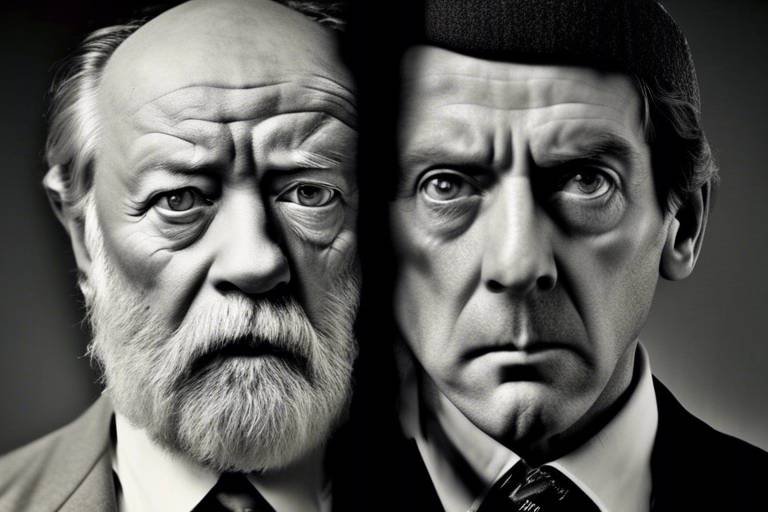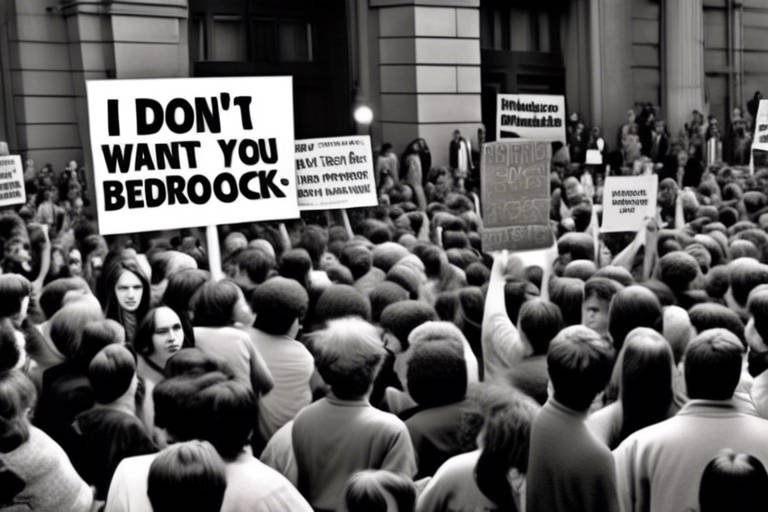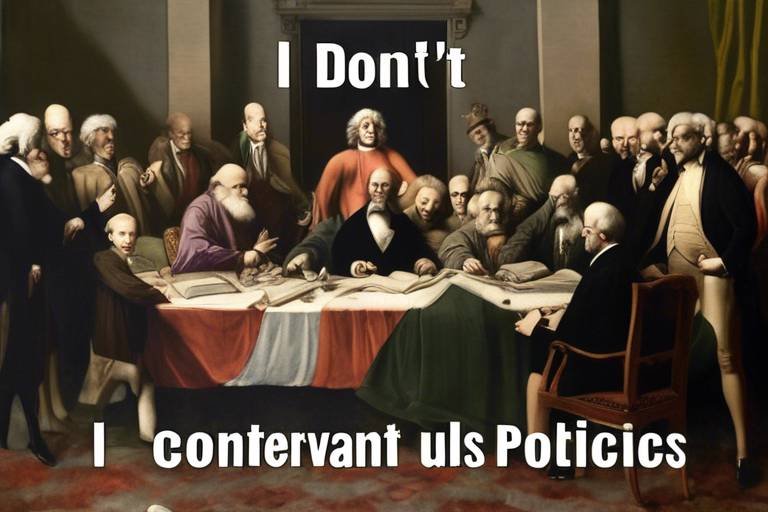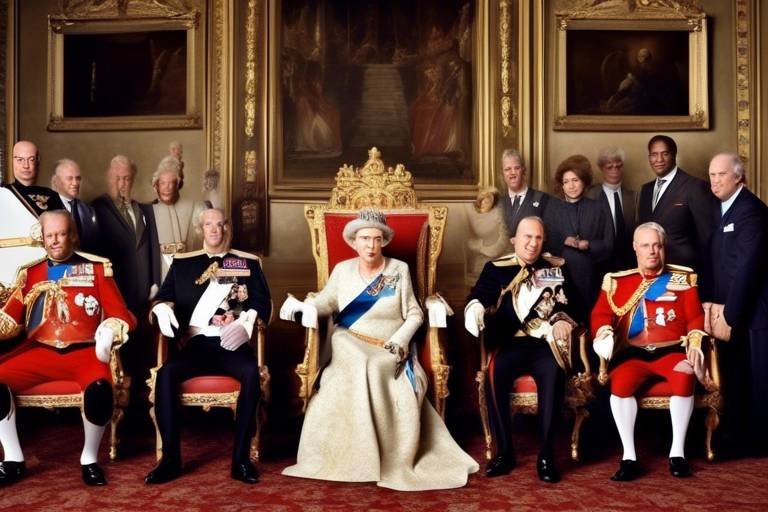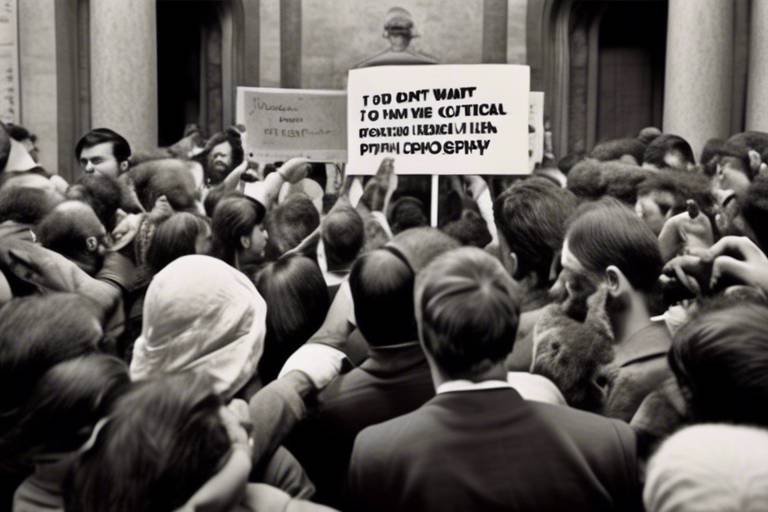Insight into the Philosophy of Marxism
Marxism is not just a political ideology; it’s a profound philosophical framework that seeks to explain the dynamics of society, economics, and history through the lens of class struggle and material conditions. At its core, Marxism challenges the status quo, offering a critique of capitalism and advocating for a revolutionary change towards a classless society. Imagine standing at the crossroads of history, where the past meets the present, and the future is shaped by the struggles of the working class. This is the essence of Marxism—a call to action, a vision for a more equitable world.
To fully grasp Marxism, we must travel back to the tumultuous 19th century, a time marked by rapid industrialization and significant social upheaval. Workers toiled in factories under harsh conditions, while a small elite, the bourgeoisie, amassed wealth and power. This stark divide birthed Marx’s revolutionary ideas, which were not just theoretical musings but a response to the real suffering of the proletariat, the working class. Marx believed that these economic disparities would inevitably lead to conflict, a struggle that would shape the very fabric of society. His writings serve as both a critique of capitalism and a roadmap for a future where the working class could rise and reclaim their dignity.
At the heart of Marxist philosophy lies the concept of class struggle. Marx argued that history is essentially a narrative of conflicts between different social classes. The bourgeoisie, who own the means of production, and the proletariat, who sell their labor, are locked in a perpetual struggle. This isn’t just a historical observation; it’s a lens through which we can understand contemporary issues. For instance, consider the ongoing debates around income inequality and workers' rights today. These are modern manifestations of the age-old class struggle that Marx articulated over a century ago.
Furthermore, Marxism introduces us to the idea of historical materialism. This methodological approach posits that material conditions—such as economic factors and the means of production—shape societal structures and human consciousness. In other words, our thoughts, beliefs, and social relations are heavily influenced by the economic realities of our time. This perspective encourages us to look beyond mere ideas and to examine the material conditions that give rise to them. It’s like peeling back the layers of an onion; the deeper you go, the clearer the picture becomes.
Marxism has left an indelible mark on political movements across the globe. From the Russian Revolution to various socialist movements in Latin America, the principles of Marxism have inspired countless individuals to fight for social justice and equity. However, the relationship between Marxism and socialism is complex. While Marxism provides a theoretical foundation for socialism, not all socialist movements adhere strictly to Marxist principles. This divergence leads to a rich tapestry of political ideologies that continue to evolve and adapt to changing social conditions.
Yet, it’s crucial to recognize that Marxism has not been without its critiques. Detractors often point to the practical outcomes of Marxist-inspired regimes, questioning the feasibility of its ideals. They argue that the concentration of power in the hands of the state can lead to authoritarianism, contradicting the very essence of Marxist philosophy, which advocates for the liberation of the working class. These debates are ongoing and highlight the need for a nuanced understanding of Marxism and its implications in the real world.
In summary, Marxism challenges us to rethink our understanding of society and economics. It invites us to consider the profound impact of class struggles on our history and our future. As we navigate the complexities of modern life, the principles of Marxism offer valuable insights into the ongoing quest for justice, equality, and a better world for all.
- What is the main idea of Marxism? Marxism primarily focuses on the conflicts between social classes, particularly between the bourgeoisie and the proletariat, advocating for a revolutionary change towards a classless society.
- How does historical materialism relate to Marxism? Historical materialism is the Marxist approach that emphasizes the influence of material conditions and economic factors on societal structures and human consciousness.
- What impact has Marxism had on modern politics? Marxism has inspired numerous political movements worldwide, influencing socialist policies and critiques of capitalism, shaping modern political ideologies.
- Are all socialist movements based on Marxism? While Marxism provides a foundational theory for socialism, not all socialist movements strictly adhere to Marxist principles, leading to a variety of interpretations and practices.
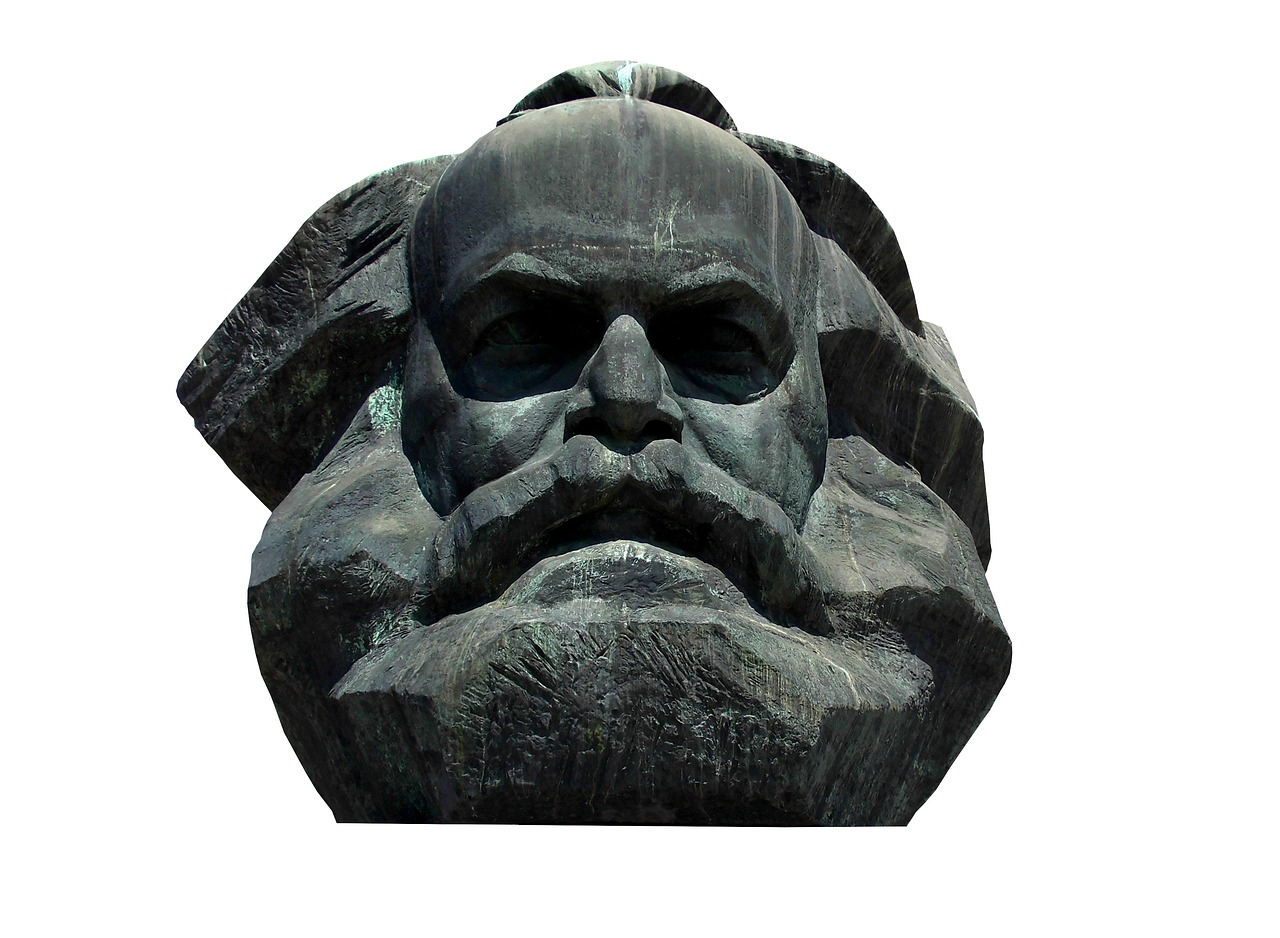
The Historical Context of Marxism
To truly grasp the essence of Marxism, we must journey back to the tumultuous 19th century, a period marked by rapid industrialization and profound social upheaval. Imagine a world where horse-drawn carriages were gradually replaced by steam engines, and factories began to sprout like mushrooms after a rainstorm. This era was not just about technological advancements; it was also a time of stark class divisions and growing discontent among the working populace.
As cities expanded and populations swelled, the working class, or proletariat, found themselves toiling in grim conditions, often for meager wages. The bourgeoisie, or capitalist class, thrived on the backs of these laborers, accumulating wealth and power while the proletariat struggled to make ends meet. This dynamic created a fertile ground for the seeds of Marxism to take root. Karl Marx, alongside Friedrich Engels, observed these disparities and formulated his revolutionary ideas as a response to the injustices faced by the working class.
During this time, the Industrial Revolution was not just an economic transformation; it was a social revolution that altered the very fabric of society. People flocked to urban centers in search of jobs, leaving behind their agrarian lifestyles. This shift brought about new social challenges, including poverty, child labor, and unsafe working conditions. Marx and Engels highlighted these issues in their seminal work, The Communist Manifesto, published in 1848, where they called for the proletariat to unite and overthrow the bourgeoisie. They believed that only through this revolution could a classless society emerge, free from oppression and exploitation.
Moreover, the political landscape of Europe was also changing. The rise of socialist movements and the spread of revolutionary ideas challenged the existing order, prompting governments to react with varying degrees of repression. The revolutions of 1848, often referred to as the "Springtime of Nations," were a series of interconnected uprisings across Europe that sought to address the grievances of the working class. Although these revolutions ultimately failed to achieve lasting change, they set the stage for Marxist thought to gain traction.
In summary, the historical context of Marxism is deeply intertwined with the socio-economic transformations of the 19th century. The struggles of the proletariat against the bourgeoisie, coupled with the revolutionary fervor of the time, provided the backdrop against which Marx developed his theories. This period was not just a chapter in history; it was a turning point that inspired countless movements and ideologies that continue to resonate today.
- What is the main idea behind Marxism? Marxism argues that history is driven by class struggles, advocating for the working class to overthrow the capitalist class to establish a classless society.
- How did industrialization influence Marxism? Industrialization created significant class divisions, leading to the exploitation of the working class, which Marx addressed in his theories.
- What are some criticisms of Marxism? Critics argue that Marxism is impractical, that it overlooks the role of the state, and that the outcomes of Marxist regimes have often been problematic.

Key Concepts of Marxism
At the heart of Marxism lies a tapestry of ideas that interweave to form a robust critique of society, economics, and politics. To truly grasp the essence of Marxism, it's essential to delve into its core concepts, which serve as the foundation for its revolutionary philosophy. These concepts not only challenge the status quo but also provide an alternative vision for a more equitable society. Among these key principles are class struggle, historical materialism, and the critique of capitalism. Each of these ideas plays a critical role in understanding the dynamics of power, wealth, and social relations.
One of the most significant aspects of Marxism is the idea of class struggle. Marx posited that history is essentially a record of conflicts between different social classes, primarily between the bourgeoisie (the capitalist class) and the proletariat (the working class). This struggle is not merely a backdrop to history; it is the driving force behind societal change. The bourgeoisie, owning the means of production, seeks to maintain their wealth and power, while the proletariat, who sell their labor, strive for better conditions and ultimately emancipation from exploitation. This conflict is not just economic; it encompasses social, political, and cultural dimensions, making it a multifaceted battleground.
Another pivotal concept is historical materialism. This methodological approach asserts that material conditions—such as economic factors and modes of production—are the primary influences on society's structure and development. Marx argued that human consciousness, culture, and social institutions are shaped by these material conditions. In simpler terms, the way we live and interact is largely dictated by the economic systems in place. For instance, consider how the advent of industrialization transformed not only the economy but also the social fabric of communities, leading to new class divisions and conflicts. This perspective encourages us to analyze societal issues through the lens of economic realities rather than mere ideals or abstract theories.
The critique of capitalism is perhaps the most recognizable aspect of Marxist thought. Marx viewed capitalism as an inherently exploitative system, where the bourgeoisie profits from the labor of the proletariat. This relationship creates a cycle of inequality, where wealth accumulates in the hands of a few while the majority remain impoverished. Marx's analysis of capitalism highlights the contradictions within the system, such as the tendency for capitalists to seek profit maximization at the expense of workers' rights and well-being. These contradictions can lead to economic crises and social unrest, as the proletariat becomes increasingly aware of their exploitation.
In summary, the key concepts of Marxism—class struggle, historical materialism, and the critique of capitalism—provide a powerful framework for understanding the complexities of societal dynamics. They challenge us to question the existing structures of power and to envision a world where equity and justice prevail. By exploring these ideas, we can better comprehend the ongoing struggles for social change and the quest for a more just society.
- What is the main idea behind Marxism?
Marxism primarily focuses on the class struggle between the bourgeoisie and the proletariat, advocating for a classless society through revolutionary change.
- How does historical materialism influence our understanding of history?
Historical materialism posits that material conditions and economic factors shape societal structures and human consciousness, influencing historical developments.
- What are the criticisms of Marxism?
Critics argue that Marxism is impractical, particularly in its approach to governance and the outcomes of Marxist-inspired regimes, leading to debates about its relevance today.

Class Struggle
The concept of is at the heart of Marxist theory, serving as a lens through which we can understand the historical and social dynamics that shape our world. It posits that history is fundamentally a narrative of conflict between different social classes, primarily the bourgeoisie (the capitalist class) and the proletariat (the working class). This conflict is not merely a backdrop; it is the driving force behind societal change and development. Think of it like a relentless tug-of-war, where each side pulls against the other, creating tension that ultimately leads to transformation.
Marx viewed class struggle as a natural outcome of the economic systems that define societies. In a capitalist system, the bourgeoisie owns the means of production—factories, land, and resources—while the proletariat sells their labor in exchange for wages. This creates a fundamental conflict of interest: the bourgeoisie seeks to maximize profits, often at the expense of the proletariat's welfare. In contrast, the proletariat strives for better wages, working conditions, and ultimately, a fair share of the wealth they help to create. This ongoing struggle is what Marx believed would eventually lead to a revolutionary change in society.
To illustrate this point, consider the following table that summarizes the key characteristics of the two classes:
| Aspect | Bourgeoisie | Proletariat |
|---|---|---|
| Ownership | Owns the means of production | Owns labor power |
| Economic Role | Profits from production | Works to produce goods and services |
| Class Interest | Maximize profit | Improve wages and conditions |
As we dive deeper into this struggle, it's essential to recognize that it manifests in various forms, from peaceful protests and strikes to full-blown revolutions. The role of revolution is particularly significant in Marxist thought. Marx argued that the proletariat must rise against the bourgeoisie to dismantle the structures of oppression and create a classless society. This is not just a theoretical idea; history is replete with examples where class struggle has led to significant societal shifts, such as the Russian Revolution of 1917 and the rise of various socialist movements across the globe.
Moreover, class struggle is not confined to the past; it continues to play a crucial role in contemporary society. Issues such as income inequality, labor rights, and social justice are modern-day manifestations of this ongoing conflict. As the gap between the rich and the poor widens, the relevance of class struggle becomes increasingly pronounced, prompting questions about the sustainability of capitalism and the potential for alternative systems.
In essence, class struggle is not just a historical concept; it is a living, breathing phenomenon that shapes our social fabric. By understanding this dynamic, we can better grasp the complexities of our modern world and the forces that drive change. So, the next time you hear about labor strikes or social movements, remember that these are not isolated events but part of the larger narrative of class struggle that has been unfolding for centuries.

Proletariat vs. Bourgeoisie
The terms proletariat and bourgeoisie are not just buzzwords in Marxist theory; they encapsulate the very essence of class struggle. Karl Marx, the father of Marxism, defined the proletariat as the working class—the individuals who sell their labor to survive. In contrast, the bourgeoisie represents the capitalist class, those who own the means of production and profit from the labor of the proletariat. This dichotomy is at the heart of Marx's critique of capitalism and serves as a lens through which we can understand societal dynamics.
Imagine a factory bustling with activity: the machines hum, and workers scurry about, each engaged in their tasks. The proletariat is the lifeblood of this operation, toiling tirelessly to produce goods. However, while they labor, the bourgeoisie—the factory owners—reap the rewards of their hard work. This scenario illustrates the inherent conflict between these two classes. The interests of the proletariat and bourgeoisie are fundamentally opposed; the former seeks fair wages and better working conditions, while the latter aims to maximize profits, often at the expense of the workers.
Marx argued that this conflict is not just a historical accident, but a driving force of societal change. The struggle between the proletariat and bourgeoisie can be likened to a dramatic play where the stakes are high, and the outcome is uncertain. As tensions rise, the proletariat may eventually unite, driven by a common interest in overthrowing the bourgeoisie. This revolutionary potential is what Marx viewed as a necessary step toward achieving a classless society.
To further clarify these concepts, consider the following table that summarizes the key differences between the two classes:
| Aspect | Proletariat | Bourgeoisie |
|---|---|---|
| Definition | Working class who sell their labor | Capitalist class who own production |
| Economic Role | Generate wealth through labor | Accumulate wealth through ownership |
| Interests | Fair wages, job security | Maximized profits, reduced costs |
| Potential for Conflict | High, due to exploitation | High, due to profit motives |
In essence, the struggle between the proletariat and bourgeoisie is a perpetual dance of conflict and resolution. While the bourgeoisie may hold the reins of power and wealth, the proletariat possesses the collective strength to challenge this status quo. This dynamic not only shapes economic relations but also influences political ideologies and movements across the globe. As we peel back the layers of Marxist philosophy, we see that understanding this class dichotomy is crucial for grasping the broader implications of Marxism in our society today.
- What is the role of the proletariat in Marxism? The proletariat is seen as the working class that must unite to overthrow the capitalist class (bourgeoisie) to achieve a classless society.
- How does the bourgeoisie maintain power? The bourgeoisie maintains power through ownership of the means of production and by exploiting the labor of the proletariat for profit.
- Is the conflict between the proletariat and bourgeoisie still relevant today? Yes, many argue that class struggle continues to manifest in modern society through economic inequality and labor rights issues.

The Role of Revolution
In the realm of Marxist theory, revolution is not merely an option; it is regarded as a crucial catalyst for societal change. Karl Marx believed that the existing social order, characterized by the oppression of the working class, could only be dismantled through a revolutionary uprising. This idea stems from the belief that the proletariat, or working class, must rise against the bourgeoisie, the capitalist class, to establish a classless society. But what does this really mean for the everyday person? Imagine a tightly sealed bottle of soda; the pressure builds up until it bursts open. This is akin to the revolutionary potential within society, where the frustrations and struggles of the proletariat can lead to an explosive change.
Revolution, in the Marxist sense, is not just about violent upheaval; it is also about transforming consciousness. The proletariat must become aware of their exploitation and unite for a common cause. This collective awareness is essential for mobilizing the masses and igniting a revolutionary spirit. In essence, revolution is both a physical act and a mental awakening. It is a call to arms, urging the oppressed to recognize their power and potential to reshape society.
The process of revolution can be seen through historical examples, such as the Russian Revolution of 1917 and the Chinese Revolution of 1949. These events were not spontaneous; they were the culmination of years of class struggle and discontent. In both cases, the proletariat banded together to overthrow the existing regimes, aiming to create a society based on Marxist principles. However, the outcomes of these revolutions have sparked debates about the effectiveness and morality of Marxist ideology. Did they truly achieve the classless society Marx envisioned, or did they simply replace one form of oppression with another?
Moreover, revolutions are often messy and unpredictable. They can lead to unforeseen consequences, including civil wars, authoritarian regimes, and social upheaval. This unpredictability raises critical questions: Is revolution the only path to achieving social equity? Can reformist approaches yield similar results without the chaos of revolution? These questions continue to fuel discussions among political theorists and activists alike.
In summary, the role of revolution in Marxism is multifaceted. It is a necessary response to the injustices of capitalism, a means to awaken class consciousness, and a pathway to envisioning a new social order. Yet, it is also a complex and often contentious topic, inviting us to ponder the true nature of change and the sacrifices required to achieve it.
- What is the primary goal of a Marxist revolution? The primary goal is to overthrow the capitalist system and establish a classless society where the means of production are collectively owned.
- Are all revolutions considered Marxist? No, while many revolutions have been inspired by Marxist theory, not all revolutions adhere to Marxist principles or goals.
- Can a society achieve Marxist ideals without a revolution? Some argue that gradual reforms can lead to similar outcomes, but traditional Marxism emphasizes the necessity of revolution for true change.
- What are some historical examples of Marxist revolutions? Notable examples include the Russian Revolution (1917) and the Chinese Revolution (1949).
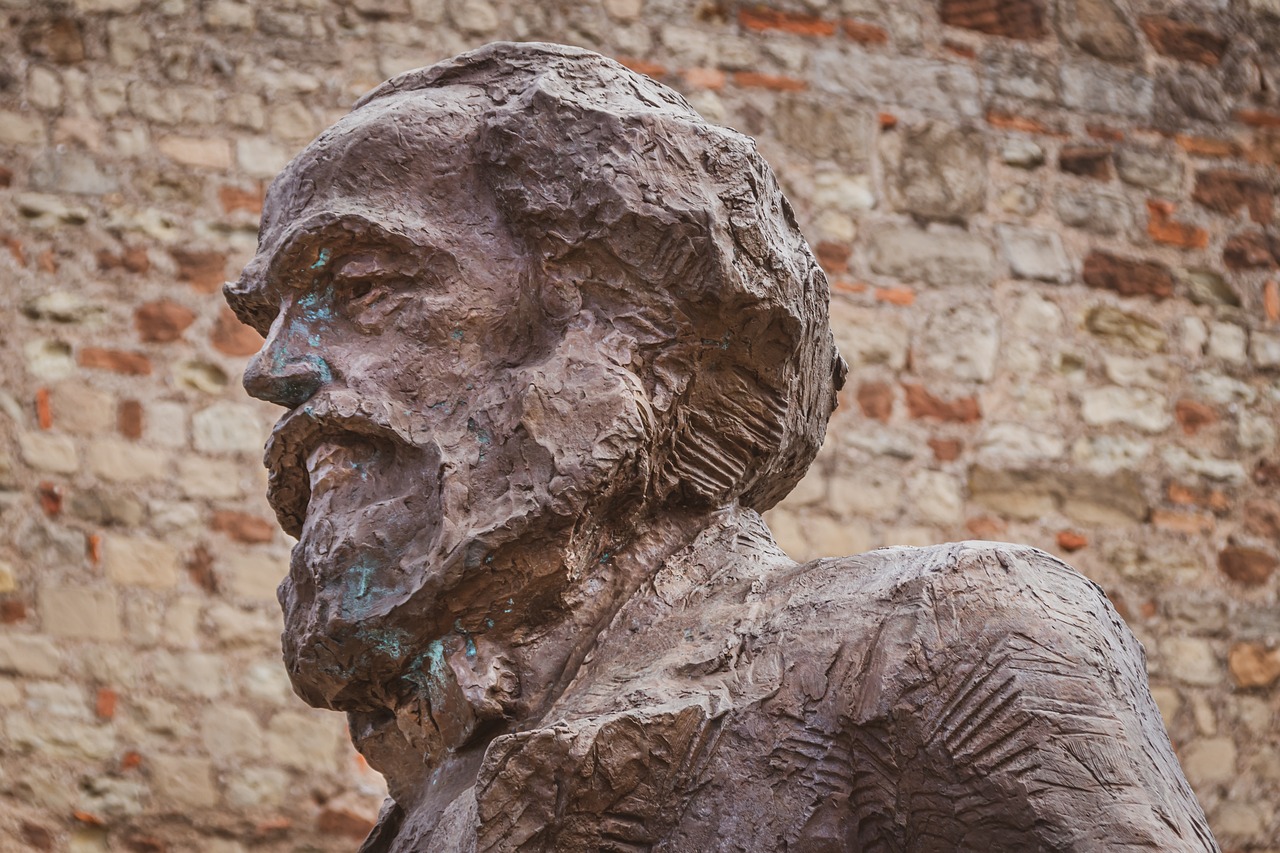
Historical Materialism
is a cornerstone of Marxist theory, serving as its methodological backbone. At its core, this concept posits that the material conditions of a society—its economic structure, resources, and production methods—are the primary drivers of its development and transformation. Imagine the world as a vast machine where the gears of economy and society interlock; when one gear shifts, the entire machine reacts, leading to changes in culture, politics, and even individual consciousness. This perspective is not just about economics; it encompasses the entire tapestry of human experience, suggesting that our thoughts, beliefs, and social relations are deeply influenced by our material conditions.
To understand historical materialism, one must consider how it contrasts with idealism, which emphasizes ideas and consciousness as the primary forces shaping reality. Marx and his collaborator Friedrich Engels argued that it is the material world that shapes human ideas, not the other way around. For instance, the transition from feudalism to capitalism was not merely an ideological shift but a transformation rooted in changing economic conditions. The rise of the bourgeoisie, driven by industrialization and capital accumulation, reconfigured social relations and ultimately led to the emergence of new ideologies that justified and explained this new order.
One of the fascinating aspects of historical materialism is its emphasis on dialectical change. This means that societal progress occurs through contradictions and conflicts. In simpler terms, think of it as a tug-of-war between opposing forces—each side pulls against the other, leading to a dynamic process of change. For example, the struggle between the proletariat (working class) and the bourgeoisie (capitalist class) is not just a battle for wages or working conditions; it represents a broader conflict over the control of resources and the direction of society.
Moreover, historical materialism allows us to analyze history in a structured way. By examining the economic base—the means of production and the relations of production—we can understand the superstructure—which includes culture, politics, and ideology. This relationship is crucial; the economic base fundamentally shapes the superstructure, but the superstructure can also influence the base. This reciprocal relationship highlights the complexity of societal evolution and the myriad factors at play in shaping human history.
In practical terms, historical materialism has profound implications for how we view social change. It encourages us to look beyond mere ideas and consider the practical realities of economic conditions. For instance, when analyzing social movements, we should ask: What are the material conditions driving this movement? How do these conditions influence the goals and strategies of its participants? By adopting this lens, we gain a deeper understanding of the forces that shape our world.
In summary, historical materialism is not just a dry theoretical framework; it is a powerful tool for understanding the complexities of human society. By focusing on the material conditions that underlie social phenomena, we can better grasp the historical processes that have shaped our world. Whether we are looking at the rise of capitalism, the struggles of the working class, or the evolution of political ideologies, historical materialism offers invaluable insights that remain relevant in contemporary discussions about society and change.
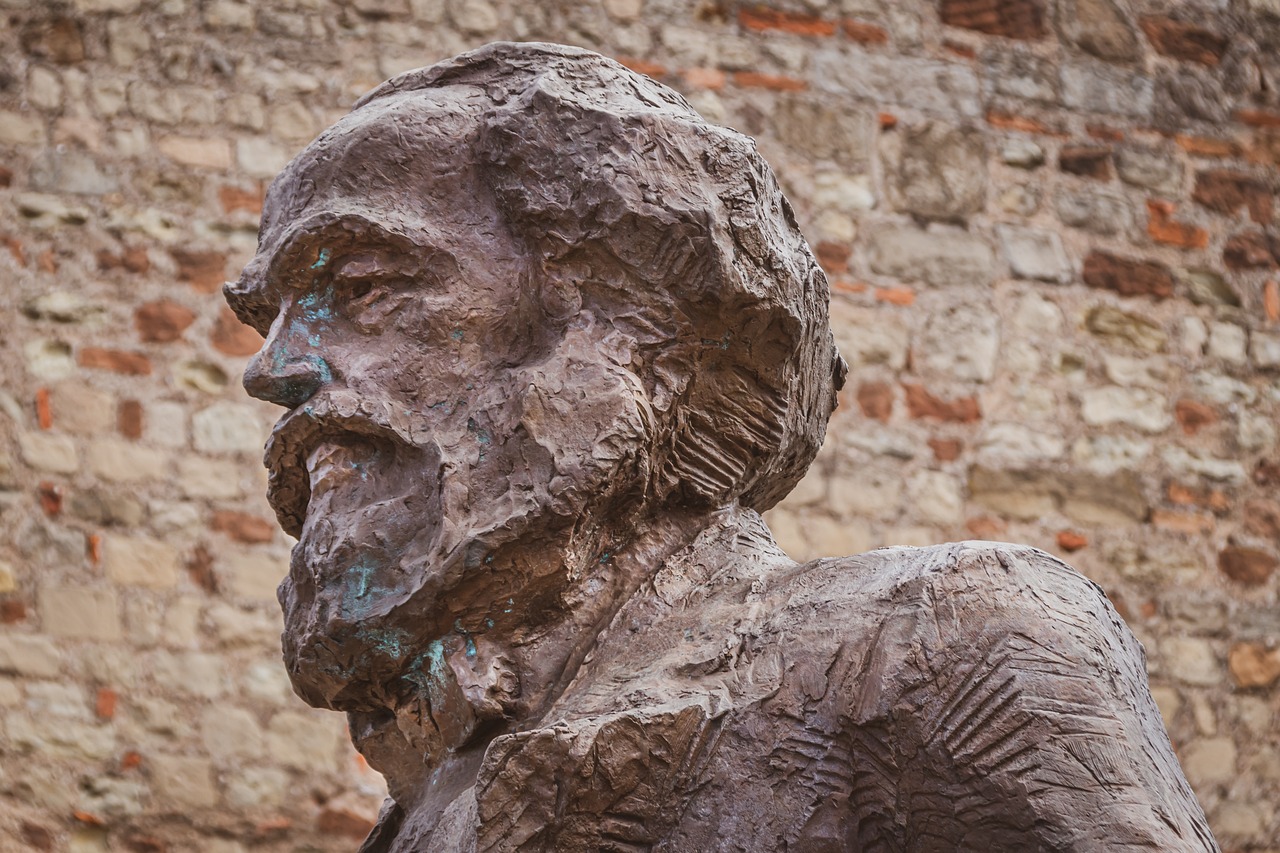
The Impact of Marxism on Politics
Marxism has played a transformative role in shaping political landscapes across the globe. Its influence extends beyond mere theory, inspiring a myriad of movements that advocate for social change and economic equity. In the wake of its emergence in the 19th century, Marxist philosophy has catalyzed revolutions, sparked debates, and even led to the establishment of governments that sought to implement its principles. But what exactly has been the impact of Marxism on politics? Let’s dive into this fascinating subject.
One of the most significant impacts of Marxism is its ability to unify disparate social groups under a common cause. By framing societal issues through the lens of class struggle, Marxism has provided a framework for workers and marginalized communities to rally against oppression and inequality. This collective consciousness has led to numerous political movements aimed at dismantling capitalist structures and advocating for the rights of the working class. For example, the rise of labor unions in the late 19th and early 20th centuries can be traced back to Marxist ideas, which emphasized the need for collective bargaining and workers' rights.
Moreover, Marxism has inspired a variety of political ideologies and movements, particularly socialism and communism. These ideologies, while distinct, share foundational principles rooted in Marxist thought. Socialism, for instance, advocates for the collective ownership of the means of production, aiming to reduce the wealth gap between the bourgeoisie and the proletariat. In many countries, socialist parties have emerged, pushing for policies that promote social welfare, healthcare, and education as fundamental rights. The table below summarizes some key socialist movements influenced by Marxism:
| Country | Movement | Year Established |
|---|---|---|
| Russia | Bolshevik Party | 1917 |
| Cuba | Cuban Communist Party | 1965 |
| China | Chinese Communist Party | 1921 |
| Venezuela | United Socialist Party of Venezuela | 2007 |
However, the political impact of Marxism is not without its critiques. Many argue that the implementation of Marxist principles has often led to authoritarian regimes, where the state exerts control over individual freedoms in the name of achieving a classless society. This has led to significant debates surrounding the role of the state in Marxist theory. Critics contend that the concentration of power in the hands of a few can create a new ruling class, contradicting the very essence of Marxist ideology. The outcomes of various Marxist-inspired regimes, such as the Soviet Union and Maoist China, have raised questions about the practicality of Marxism in real-world governance.
Despite these critiques, the legacy of Marxism continues to resonate in contemporary politics. It has provided a lens through which to analyze and critique the capitalist system, highlighting issues of inequality, exploitation, and the environmental impacts of unchecked capitalism. In recent years, there has been a resurgence of interest in Marxist theory, particularly among younger generations who are grappling with the realities of economic disparity and social injustice. This revival is evident in movements such as Occupy Wall Street and the Fight for $15, which echo Marxist themes of class struggle and the demand for economic justice.
In conclusion, the impact of Marxism on politics is multifaceted and profound. It has inspired movements for social change, influenced political ideologies, and sparked critical debates about the nature of power and equality. As we move forward in an increasingly complex world, the relevance of Marxist thought continues to challenge and inspire new generations to rethink the structures that govern our societies.
- What is Marxism? - Marxism is a socio-political and economic theory that argues for the class struggle and critiques capitalism.
- How has Marxism influenced modern politics? - It has inspired various political movements, particularly socialism and communism, and has shaped debates around economic inequality.
- What are some critiques of Marxism? - Critics argue that Marxism can lead to authoritarianism and that its implementation has often resulted in oppressive regimes.
- Is Marxism still relevant today? - Yes, many contemporary movements draw on Marxist principles to address issues of inequality and social justice.

Marxism and Socialism
When we talk about Marxism and socialism, we’re diving into a rich tapestry of ideas that have shaped political thought over the last century. At its core, Marxism provides a philosophical foundation for socialism, advocating for the idea that the means of production should be owned collectively rather than by individuals. But what does that really mean for society? Well, it suggests a shift from a profit-driven economy to one that prioritizes the needs of the community. Think of it like a potluck dinner where everyone contributes a dish; the focus is on sharing and ensuring that no one leaves the table hungry.
Marx envisioned a world where the working class, or the proletariat, would rise against the capitalist class, or the bourgeoisie, to create a society that is free from exploitation. This revolutionary spirit is where socialism finds its roots. However, it’s important to note that not all socialists identify strictly with Marxism. There are various strands of socialism, some of which may diverge from Marxist principles, focusing more on democratic processes rather than outright revolution.
One of the key aspects of socialism influenced by Marxism is the emphasis on social equity. This means striving for a society where wealth and resources are distributed more evenly, reducing the gap between the rich and the poor. In practice, this could involve policies such as:
- Universal healthcare
- Free education
- Progressive taxation
These policies aim to ensure that everyone has access to basic needs, fostering a sense of community and mutual support. However, the implementation of such policies often sparks heated debates. Critics argue that Marxist-inspired socialism can lead to government overreach and a lack of personal freedoms. They fear that the state could become too powerful, stifling individual initiative and entrepreneurship. On the other hand, proponents argue that without some level of collective ownership and regulation, the wealth gap will only continue to widen, exacerbating social tensions.
In examining the relationship between Marxism and socialism, it's crucial to recognize the historical context in which these ideas developed. The late 19th and early 20th centuries were rife with industrial growth and social upheaval, creating fertile ground for revolutionary ideas. The Russian Revolution of 1917, for example, was a direct manifestation of Marxist theory in action, leading to the establishment of a socialist state. However, the outcomes of such revolutions have led to varied interpretations of Marxist principles, with some regimes straying far from the original ideals of equality and community.
Ultimately, the dialogue between Marxism and socialism continues to evolve, reflecting the changing realities of society. As we face modern challenges like climate change, economic inequality, and global health crises, the conversation around these ideologies becomes increasingly relevant. Will we lean towards a more collective approach to solve these issues, or will individualism reign supreme? The answer may lie in finding a balance between the two, creating a society that values both personal freedom and social responsibility.
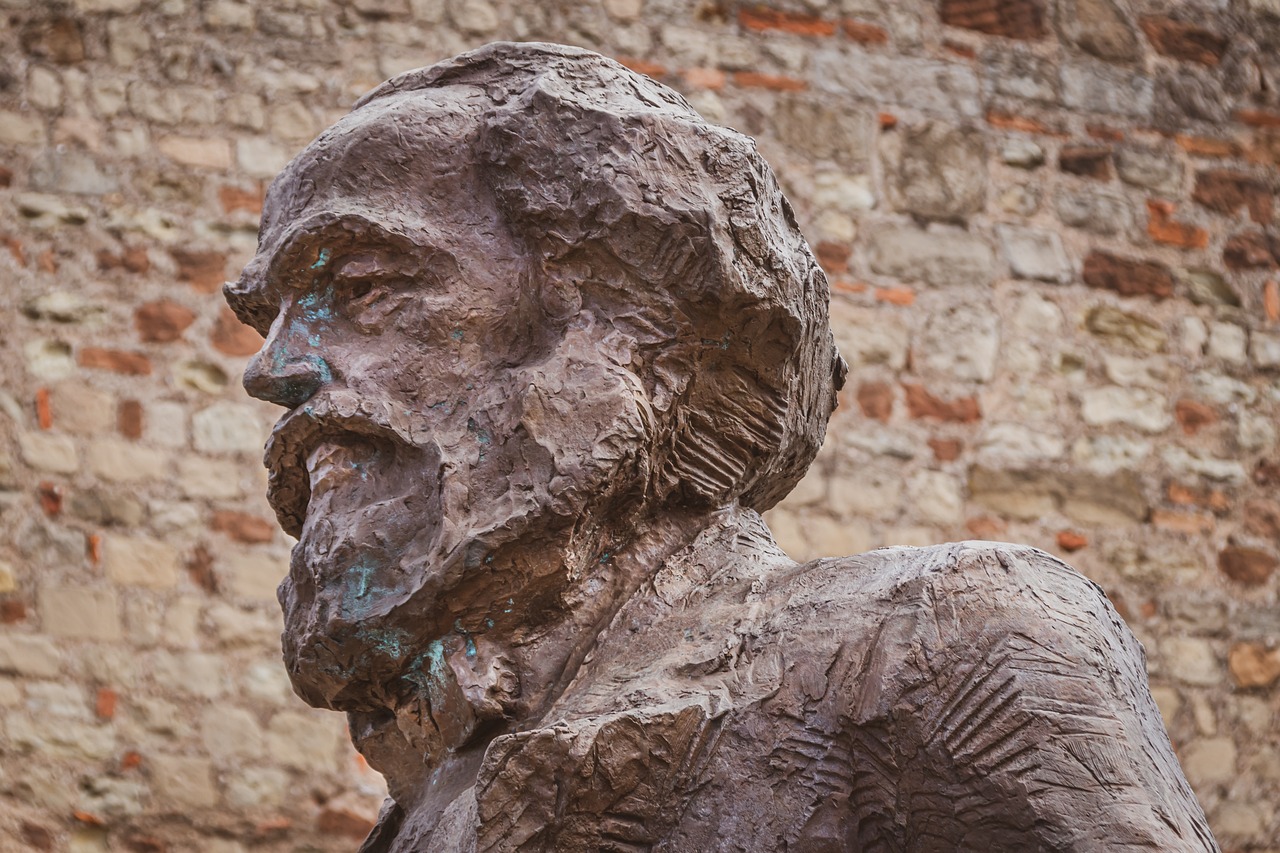
Critiques of Marxism
Marxism, despite its profound influence on political thought and practice, has faced a plethora of critiques over the years. Critics often point to its theoretical underpinnings, practical applications, and the outcomes of Marxist-inspired regimes as areas of concern. One significant critique revolves around the feasibility of Marxist ideals. Detractors argue that the vision of a classless society, where the proletariat rises to overthrow the bourgeoisie, is not only unrealistic but also disregards human nature's complexities. After all, can we truly expect individuals to relinquish personal ambition for collective good? This question has sparked heated debates among scholars and activists alike.
Another critical point of contention is the role of the state in a Marxist framework. Marx envisioned a transitional state that would eventually wither away, leading to a stateless society. However, in practice, many Marxist-inspired regimes have resulted in authoritarian states that maintain strict control over their citizens. This contradiction raises eyebrows: how can a theory that aims for liberation lead to oppression? The historical examples of the Soviet Union and Maoist China serve as cautionary tales, prompting critics to argue that Marxism, in its application, often contradicts its foundational principles.
The outcomes of Marxist policies also warrant scrutiny. While proponents argue that Marxism seeks to address inequalities and promote social welfare, critics highlight the economic inefficiencies and human rights violations that have occurred under Marxist regimes. A notable example is the Great Leap Forward in China, which aimed to rapidly transform the country into an industrialized socialist society but resulted in catastrophic famine and millions of deaths. Such historical events challenge the efficacy of Marxist economic models and lead to questions about their viability in modern contexts.
Moreover, the critique extends to the notion of class struggle itself. Some argue that by focusing predominantly on class dynamics, Marxism neglects other forms of oppression, such as those based on race, gender, and ethnicity. This oversight has led to the emergence of intersectional theories that seek to address the multifaceted nature of social injustice. Critics assert that a more holistic approach is necessary to understand the complexities of contemporary society, suggesting that Marxism's traditional framework may be too narrow.
Despite these critiques, Marxism remains a vital part of political discourse. Many modern movements still draw inspiration from its principles, adapting them to contemporary issues. The ongoing debates surrounding Marxism highlight its relevance and the need for critical engagement with its concepts. As society evolves, so too must the interpretations of Marxist theory, ensuring that it can address the challenges of the 21st century.
- What is the main critique of Marxism? The primary critiques of Marxism focus on its feasibility, the role of the state, and the economic outcomes of Marxist regimes.
- How did Marxism influence modern politics? Marxism has shaped various political movements, inspiring socialist policies and critiques of capitalism worldwide.
- Can Marxism adapt to contemporary issues? Yes, many modern movements reinterpret Marxist principles to address current social, economic, and political challenges.
Frequently Asked Questions
- What is Marxism?
Marxism is a socio-political and economic theory developed by Karl Marx and Friedrich Engels. It focuses on the struggles between different social classes, primarily the bourgeoisie (capitalist class) and the proletariat (working class), advocating for a classless society achieved through revolution.
- How did the historical context influence Marxism?
The 19th century was marked by rapid industrialization and significant class struggles. These socio-economic conditions shaped Marx's ideas, as he sought to address the inequalities and exploitation faced by the working class in an emerging capitalist society.
- What are the key concepts of Marxism?
Marxism is built on several core concepts, including class struggle, historical materialism, and a critique of capitalism. These ideas are essential for understanding how Marx viewed the development of society and the dynamics of power.
- What is the role of class struggle in Marxist theory?
Class struggle is fundamental to Marxist thought. Marx argued that history is driven by conflicts between social classes, particularly between the bourgeoisie and the proletariat, which leads to societal change and the potential for revolution.
- What does Marx mean by proletariat and bourgeoisie?
The proletariat refers to the working class who sell their labor in exchange for wages, while the bourgeoisie represents the capitalist class that owns the means of production. Their conflicting interests create an inherent struggle within society.
- How does Marxism view revolution?
In Marxist theory, revolution is seen as a crucial mechanism for societal change. The proletariat must rise against the bourgeoisie to dismantle the capitalist system and establish a classless society where resources and power are shared.
- What is historical materialism?
Historical materialism is the methodological approach of Marxism, which posits that material conditions and economic factors shape societal structures and human consciousness. It emphasizes the importance of understanding history through the lens of economic development.
- How has Marxism impacted politics globally?
Marxism has profoundly influenced political movements worldwide, inspiring revolutions and socialist policies. It has shaped modern political ideologies and continues to be a point of reference in critiques of capitalism.
- What is the relationship between Marxism and socialism?
Marxism serves as a foundational theory for various socialist movements, which advocate for collective ownership and social equity. While not all socialists identify as Marxists, many draw on Marxist principles to support their goals.
- What are some critiques of Marxism?
Marxism has faced critiques regarding its feasibility, the role of the state, and the outcomes of regimes inspired by Marxist ideas. These critiques have sparked ongoing debates within political theory about the practicality of Marxist principles in real-world applications.




